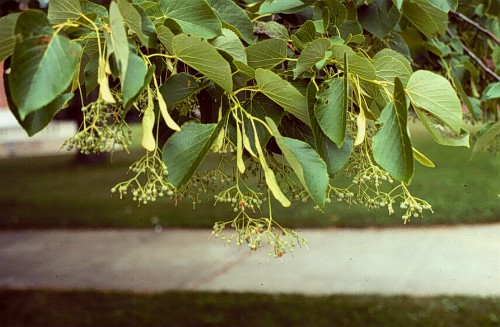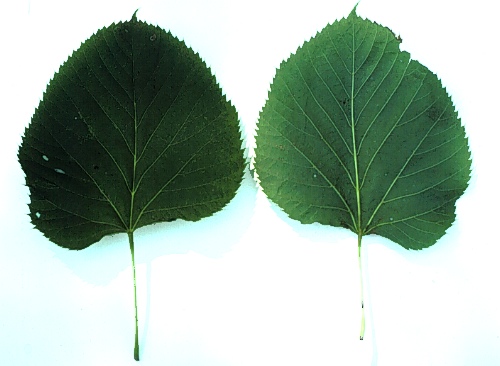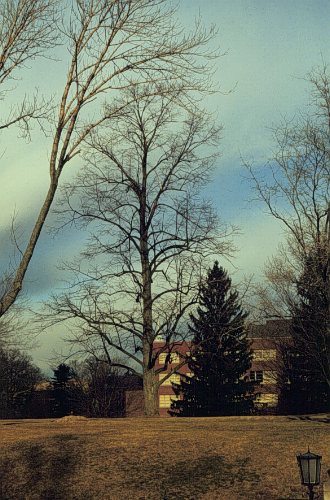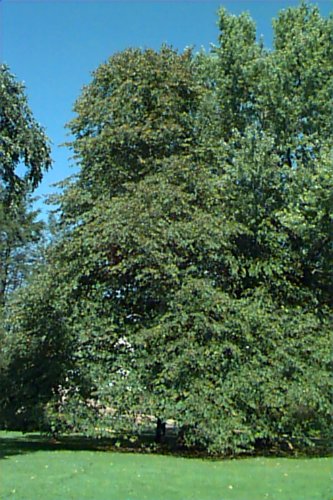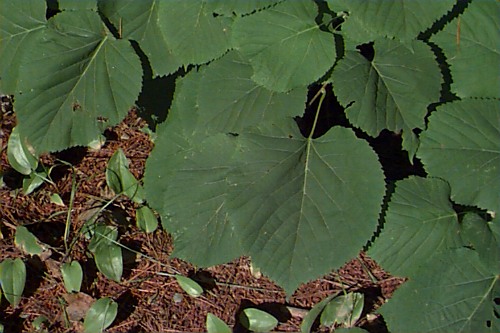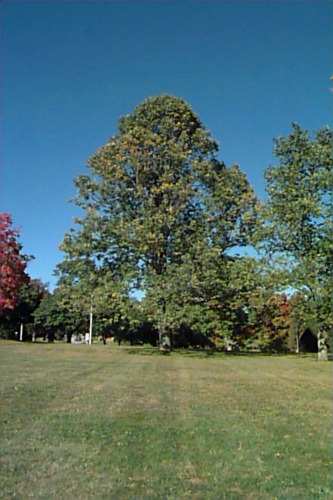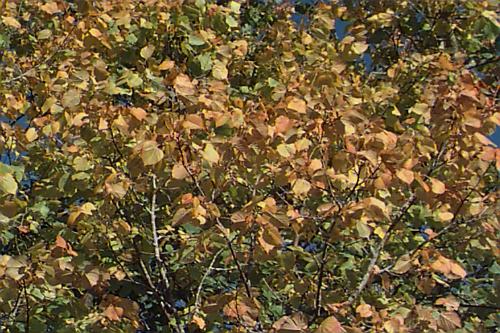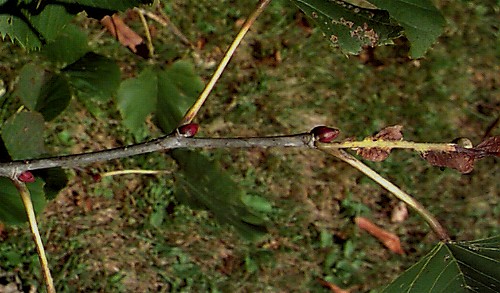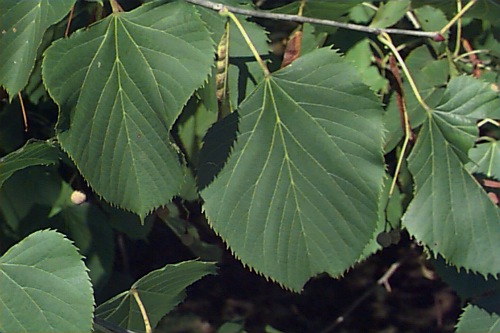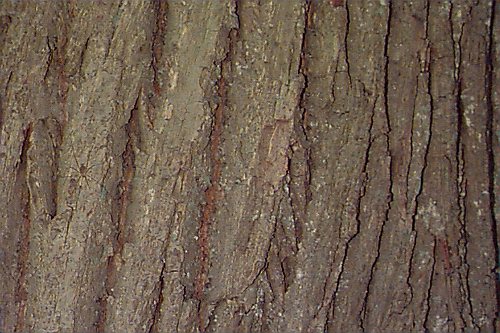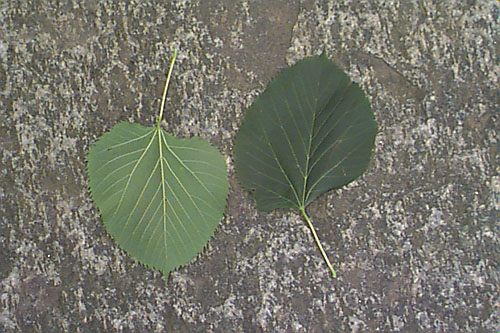Tilia americana
American Linden, Basswood
Tiliaceae
ExpandSpecial Note: This species now includes plants labeled as Tilia heterophylla and its cultivars.
Habitat
- native to eastern North America
- zone 4
Habit and Form
- shape is oval to irregular
- branching is spreading, arching or irregular
- grow to around 70' tall
- a medium to large deciduous tree
- trunks are usually quite straight
Summer Foliage
- deciduous
- alternate leaf arrangement
- 4" to 8" long
- broad heart shape
- cordate or oblique leaf base
- short acuminate tip
- serrate margin
- dark green above, pale green or silvery underneath
Autumn Foliage
- poor fall color
- green or yellowish
- late season foliage can develop a brown cast
Flowers
- small
- creamy white flowers
- blooms in late June to early July
- fragrant
- attractive to bees
- held in loose drooping clusters with a yellow-green leaf-like bract
Fruit
- 0.2" to 0.3" in diameter
- whitish yellow
- rounded fuzzy nutlet
- held in clusters
Bark
- gray-brown color
- distinctive long, flat-topped ridges
Culture
- full sun to light shade
- prefers moist, fertile, deep soils
- tolerant of difficult, dry or heavy soils
- easily transplanted
- prune to remove basal sprouts
Landscape Uses
- shade tree
- lawn tree
- naturalistic areas
Liabilities
- attracts bees when in bloom
- tends to form basal suckers that require removal
- somewhat coarse texture
- Japanese beetle damage to foliage
- several potentially troublesome insects including aphids, borers, beetles, leafminer and scales
ID Features
- large heart-shaped leaves with cordate of oblique bases
- medium to large tree
- straight trunk
- buds usually red and stems are gray or red/green
- branching sparser than other Lindens
Propagation
- by seed
- cultivars mostly by bud grafting
- cuttings can be rooted
Cultivars/Varieties
Included here are cultivars of Tilia americana and forms previously listed under T. heterophylla, which is currently considered to be the same as T. americana.
'Bailyard' (Frontyard®, similar to 'Fastigiata') - A symmetrical grower, this pyramidal-rounded selection will reach 75' tall and 40' wide.
'Boulevard' - A tailor-made stree tree, this plant grows to 60' tall but has limited spread (perhaps 30') due to its pyramidal growth habit with upright branches. The summer foliage is middle green with yellow fall color.
'Continental Appeal' - Previously included as a cultivar of Tilia heterophylla, this plant has a wide, dense crown supported by narrow, ascending branches. Thus, it is much taller than wide. The leaves have attractive silvery undersides, plus the tree is easily grown and tolerates poor environmental conditions.
'Wandell' (Legend™) - This is a handsome pyramidal selection with symmetrical branching and a strong leader. It will grow to at least 60' tall and 40' wide, with quality foliage that remains clean in summer. Young stems and dormant buds are reddish in winter.
'Redmond' - The most common cultivar in the trade, this purported hybrid selection has been widely employed as a street/lawn tree due to its uniform pyramidal habit to 60' tall with a spread of 30'. The large, lustrous green leaves may color yellow in fall.
